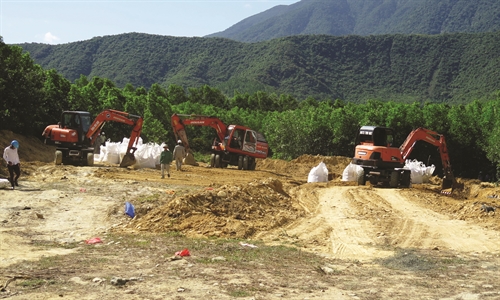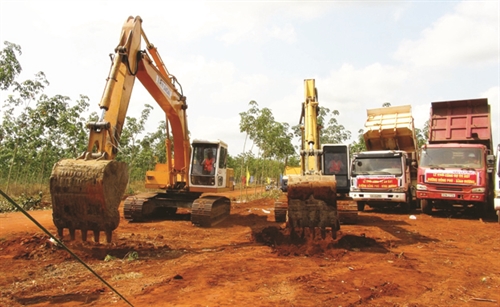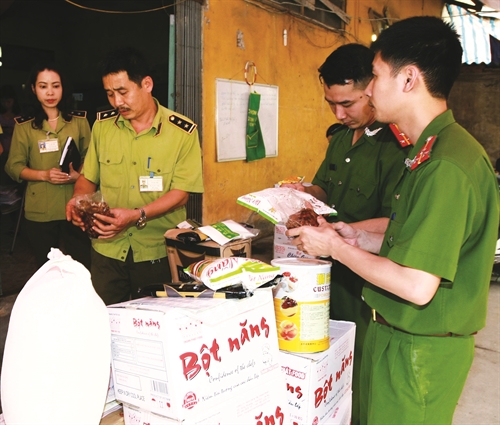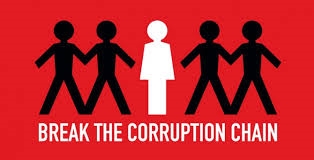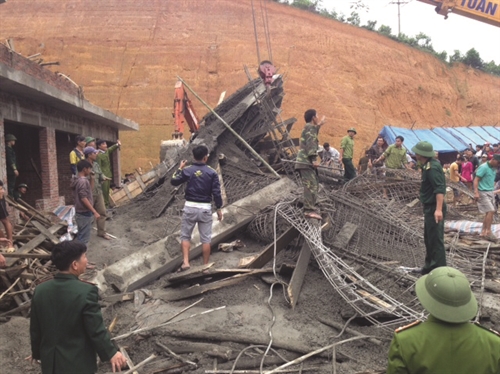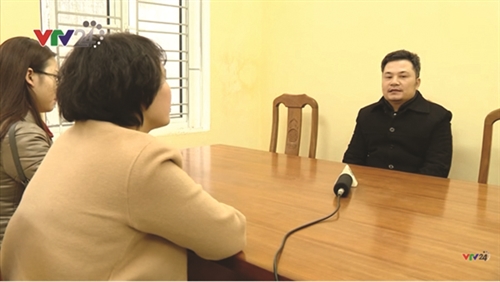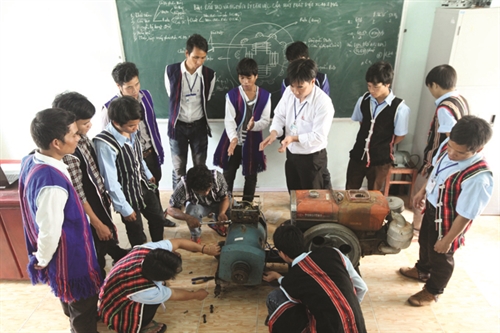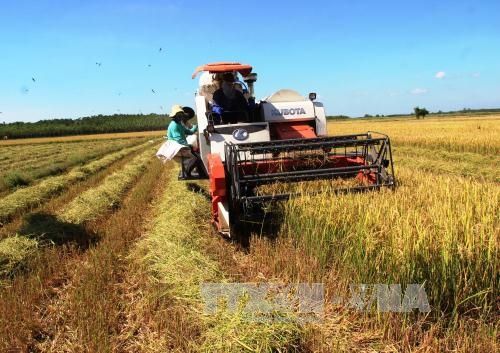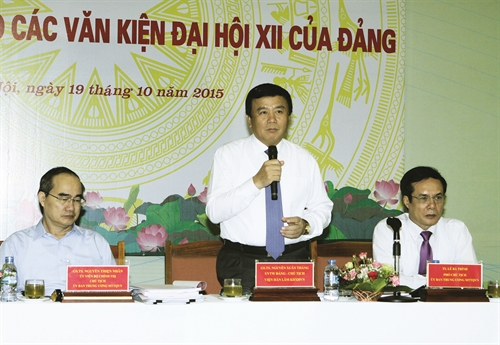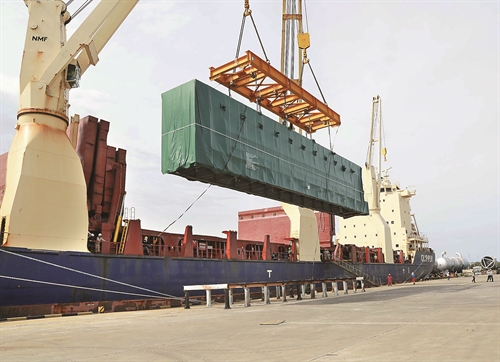Of nearly USD 300 billion in foreign direct investment Vietnam has attracted so far, more than half is unreal as foreign investors tend to blow up registered capital to get incentives.
The country had by July attracted an accumulative figure of nearly USD 300 billion in foreign direct investment, according to the Foreign Investment Agency under the Ministry of Planning and Investment (MPI).
The first seven months of this year alone saw foreign direct investment rising 46.9 percent year-on-year to USD 12.94 billion, including nearly USD 8.7 billion of newly registered capital and USD 4.25 billion added to existing projects.
But disbursed FDI capital reached only around USD 140 billion, meaning more than half of the figure was unreal, said Prof. Dr. Nguyen Mai, chairman of the Vietnam Association of Foreign Investment Enterprises, who has watched Vietnam’s FDI attraction for nearly three decades since the Foreign Direct Investment Law was introduced in 1987.
The unreal amount is regrettably still included in the annual statistics and economic reports, creating an illusion about foreign capital inflows to Vietnam, he said.
Prof. Mai agreed any country attracting FDI would report difference between registered and disbursed capital but such a huge gap as in Vietnam should not be overlooked.
Analysts quickly pointed out the unreal capital came from large-sized projects which stayed on paper only.
Thailand’s oil and gas group PTT has recently suspended its Victory Nhon Hoi oil refinery and petrochemical complex project in Binh Dinh central province. This project was initially estimated in 2012 to have an investment capital of USD 28 billion when PTT began studying the investment. The committed investment was later cut to USD 22 billion and then USD 20 billion but no progress has been seen since 2012.
Earlier, Taiwan’s USD 2-billion Guang Lian steel complex in Quang Ngai central province had its investment certificate revoked for failing to start after being licensed ten years ago.
Ba Ria-Vung Tau province also had some USD 12.7 billion worth of FDI registered just on paper. This number includes USD 4.5 billion of Long Son petrochemical project and USD 4.1 billion of Saigon Atlantis Hotel project, both licensed in 2008, and USD 900 million of Dragon Sea international convention and tourism resort project licensed in 2010.
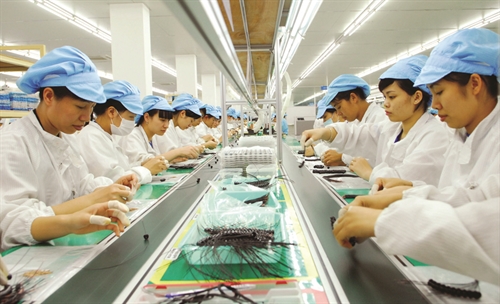 |
| An electronic appliance manufacturing line at the RoK invested Bluecom Vina Company Limited in Trang Due industrial park (Hai Phong) __Photo: Danh Lam/VNA |
Analysts blamed on the policy to offer incentives based on investment size, prompting investors to register huge capital amounts to receive preferential treatment.
Investors tended to blow up investment capital to get more incentives, particularly land-related incentives, economist Pham Chi Lan told the local press. Many big-sized projects received land areas much larger than needed as a result of enjoying land incentives, she said.
Hiking up capital with unreasonably high costs of production lines and equipment was also a trick played by investors to report false losses for tax evasion and transfer pricing, Lan added.
Dr. Nguyen Minh Phong, another economist, pointed out that foreign investors took advantage of registering high capital to receive not only investment incentives but also the “green channel mechanism” which offered foreign-invested projects quicker and easier processing of procedural formalities.
Many projects registered at as high as USD 3-4 billion in fact merely sought for transfer to other investors to get profits, Prof. Mai said, citing many projects were not started years after being licensed because investors could not re-sell their projects.
Investors’ practice to inflate registered capital caused massive waste and adverse economic and social impacts to Vietnam, Lan said. But more seriously, it presented a false picture of foreign investment in the country and might deny truly interested investors investment opportunities in the country.
Withdrawal of licensed investment projects largely affected Vietnam’s investment environment, Prof. Mai said, stressing the need to tighten the requirement for large projects to make investment deposits. Under current regulations, all investment projects must make an investment deposit before being licensed and projects using 50 hectares of land or having an investment capital of USD 100 million or more must be licensed at the central level. But in reality, many large projects were licensed by local authorities without having to make investment deposits for certain reason, leaving localities in a dead loss once investors withdrew, Prof. Mai stressed.
To avoid unreal FDI capital, particularly for investors keeping land, progressive land taxes should be imposed, according to Dr. Tran Dinh Thien, director of Vietnam Economics Institute, saying an investor doing nothing with its licensed project for two years for instance must be taxed double or even triple.
The FDI attraction strategy should also be revised to take into account quality rather than quantity, Dr. Thien said, calling investment promotion authorities to look for good and strategic investors instead of attracting massive investment.
Prof. Mai said the MPI should ask local authorities to review FDI projects that have not yet been implemented to group them into two: those which can be implemented this year and others which cannot be started. The projects of the first group should be closely monitored so as to be implemented early while the other group must be removed from investment statistics.
Do Nhat Hoang, director of the Foreign Investment Agency, said review of FDI was now key to investment promotion work. It was now time to see the real effectiveness of FDI projects rather than only taking care of investors and facilitating project implementation as previously, Hoang stressed.
The MPI was now working with other ministries and sectors to screen projects to find out those meeting with difficulties so as to make appropriate adjustments, Hoang said, adding those projects whose investors were financially unviable would be eliminated so as to create opportunities for other potential investors. We could allow investors to delay project implementation for plausible reasons, but not for an indefinite period as this would be unfair to other investors, including local ones, he said.
The MPI is now drafting a national investment promotion list to call foreign investment in infrastructure, manufacturing and supportive industries, agriculture, forestry and fisheries.- (VLLF)
